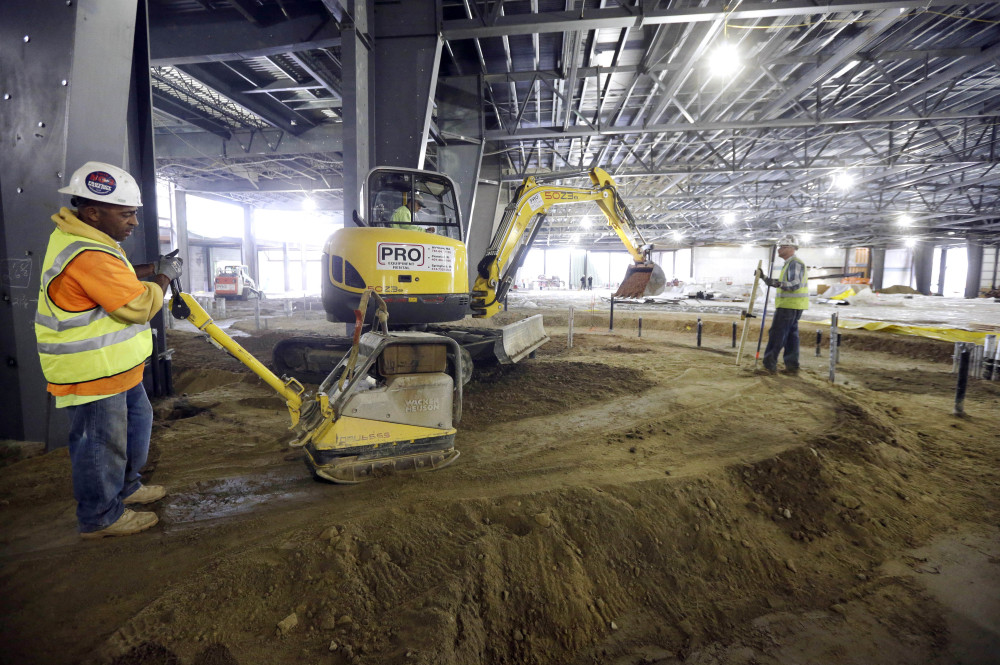PLAINVILLE, Mass. — In this suburb a few miles from the Rhode Island state line, construction crews are moving earth, pouring concrete and filling out the steel frame of what could eventually become Massachusetts’s first slots parlor.
But the $225 million plan to expand the Plainridge harness racing track into a gambling destination with about 1,250 electronic gambling machines could come to an abrupt halt.
Bay State voters decide Nov. 4 whether to repeal the 2011 state law – which the legislature approved and Gov. Deval Patrick signed into law – opening the door for such developments in the first place.
If approved, the unprecedented question would make Massachusetts the first state in the nation to reverse course on casinos. Voters in at least six other states will decide whether to expand or introduce casino offerings this election.
Penn National Gaming, the Pennsylvania company that is developing the Plainville project, says a repeal would mean losing more than $100 million it has already invested in the project, as well as the end of live horse racing in Massachusetts and the “thousands of jobs” that depend on it.
“This has been a long, long fight,” said Jimmy Hardy, a local horse trainer and owner who campaigned hard for the casino law. “We’ve been on the ropes so many times. We’ve been hanging on the edge.”
Penn has taken a leading role in trying to defeat the measure, contributing much of the $3 million that casino companies and their supporters have pumped into the Committee to Protect Massachusetts Jobs.
The companies, which include MGM and Wynn, the two other state casino license holders, say the question is about creating thousands of jobs, generating much-needed tax revenue and redeveloping land in some of the state’s most economically struggling communities.
Opponents are local activists organized under the Repeal the Casino Deal campaign.
They talk about the casino industry’s “culture of corruption” and the negative impacts from more people struggling with gambling addiction to increased traffic, crime and revenue losses for small, independent businesses. Christian, Jewish and Islamic leaders, including the influential Roman Catholic Cardinal Sean O’Malley, have been key figures in pushing this message.
Boston College economics professor Richard McGowan, who studies the gambling industry, said November’s vote represents a debate particular to Massachusetts and less a bellwether for the national casino industry, which has seen four of Atlantic City’s casinos close this year amid concerns that the Northeast casino market is increasingly oversaturated.
“This vote is some ways class warfare between those parts of the state that view casinos as economic development and those wealthier parts of the state that view casinos as morally corrupt,” he said.
Send questions/comments to the editors.



Success. Please wait for the page to reload. If the page does not reload within 5 seconds, please refresh the page.
Enter your email and password to access comments.
Hi, to comment on stories you must . This profile is in addition to your subscription and website login.
Already have a commenting profile? .
Invalid username/password.
Please check your email to confirm and complete your registration.
Only subscribers are eligible to post comments. Please subscribe or login first for digital access. Here’s why.
Use the form below to reset your password. When you've submitted your account email, we will send an email with a reset code.